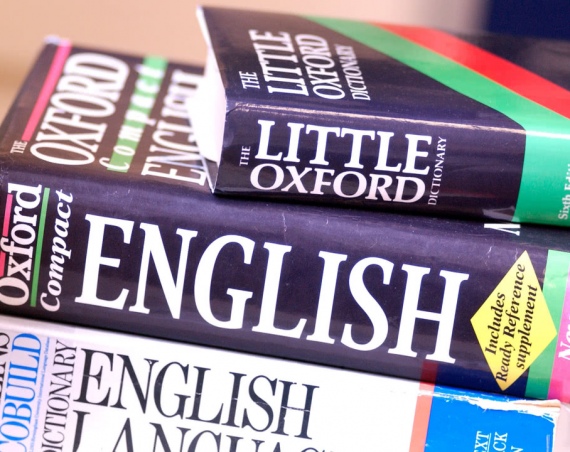IELTS Speaking part 1 имеет ограниченный набор вопросов. Это означает, что их все можно классифицировать.
What do you like to do in your free time? – тип вопросов, который часто задают на тесте. Чтобы на него ответить, вам нужно следовать рекомендациям в посте.
Мы с вами рассмотрим разные типы вопросов и то, как можно на них ответить. Это не является лучшим или единственно правильным ответом. Но я вам рекомендую взять их себе на заметку.
Помните, что хорошая подготовка – залог успешной сдачи любого экзамена.
Итак, когда экзаменатор спрашивает вас подобного рода вопросы
What do you like to do in your free time? – type questions
- What do you like to do in your spare time?
- What do you like to do when you are on holiday?
- What do you like to do when you are not working?
Помните, что вопросы необязательно должны начинаться именно так. Главное, проанализируйте саму суть вопроса, и затем применяйте наши рекомендации.
Порядок ответа:
- Определите парочку вещей, которые вам нравится делать
- Опишите, почему вам нравится это делать.
Вам нужно освоить или повторить следующую структуру:
3 шага к ответу
1.Используйте либо enjoy/like+verb-ing либо like to+verb
(“I like studying foreign languages”/ “I like to study foreign languages – I enjoy studying foreign languages)
2. Используйте один или два фразовых глагола, типичных для носителей языка для выражения мысли “I like”
( (I’m quite into playing computer games”/ “I’m really keen on baking cakes”)
3. Используйте прилагательные положительных чувств для того чтобы показать степень ваших чувств.
(“I like playing ice hockey. It’s exciting”/I’m quite into climbing the mountains. I find it fascinating.) Вы можете записаться на бесплатный пробный урок по английскому языку. З
Шаг 1 Like & Enjoy
Глаголы Like и Enjoy очень распространены, поэтому вам нужно их очень хорошо усвоить.
Like
Like
- Like + to verb
I like to relax
- Like + verb-ing
I like hanging out with friends
Enjoy
- Enjoy + verb-ing
I really enjoy eating ice cream.
Если вы или экзаменатор в процессе разговора уже упомянули деятельность, то обсуждение можно продолжить ссылаясь на него как “it”.
Например:
“I really enjoy studying English. It’s fun”
Во втором предложении “it” относится к “studying English”. Это делается для того, чтобы избежать лексических повторов.
При этом нужно помнить о согласовании числа, например, если ранее вы говорили о чем-то во множественном числе, то соответственно к нему будете говорить “they”.
Например:
“I like watching football matches – they are so exciting.”
Практическое задание
Each of the sentences below are has at least one mistake. Identify the mistakes and write the correct sentences in the spaces provided.
When I’m not working I really enjoy to cycle in the countryside outside my city. They are a very healthy and exciting pastime.
I really like to getting involved in team sports. It is particularly good for building up cooperative skills and healthy competition.
I especially liking to spend my free time sleeping and being lazy in my dormitory.
My friends and I are really keen on play computer games. It is a really good way to spend an evening.
I enjoy to take part in martial arts like Kungfu. It can keep you fit and make you strong!
She enjoys go out to bars on weekends and hang out with friends.
Шаг 2 Способы сказать “I like”
Давайте рассмотрим способы выражения “I like” в стиле носителя языка.
- I’m quite into + activity/hobby
I’m quite into playing football – I get very excited about it.
- I’m a fan of + activity/hobby
I’m a big fan of hip-hop music – I often go to concerts
- I’m keen on + hobby/activity
I’m really keen on going to eat in Chinese restaurants – I love Chinese food
- I’m interested in + activity/hobby
I’m very interested in law; I’m always reading about the latest laws and legal cases.
Практическое задание
Rewrite the words below in the correct order
1.Quite on detective into stories I’m TV watching
2. Of fan comedies huge a romantic She’s
3. Interested I’m latest in fashions extremely the
4. Very dancing He’s with at clubs on friends keen
Шаг 3 Прилагательные позитивных чувств
Для того чтобы объяснить, почему вам нравится что-то делать, следует использовать прилагательные позитивных чувств. Для неносителей языка очень трудно использовать их правильно и кандидаты часто теряют баллы из-за неправильного их использования.
Используйте to be + verb-ed при описании человека, испытывающего чувства, ощущения
- He’s bored when he has nothing to do.
- She’s fascinated by music
- They’re interested in playing football
- I’m satisfied with my lessons
- The dog’s excited when i give it food.
Используйте to be + verb-ing когда говорите о вещи, вызывающей эмоции
- Curling is boring
- Music is fascinating
- Studying Chinese is interesting
- Seeing a concert is exciting
- Eating a big dinner is satisfying
Практические задания
Complete the sentences below by writing the correct forms of the words in brackets.
- I really enjoy reading; a good book is so … (satisfy)
- I think movies are … (bore)
- My friends are all … (excite) about the concert on Sunday.
- I love studying English! I’m … (fascinate) by the grammar.
- I’m really … (interest) In learning more about other countries.
- Julia finds her art classes incredibly … (satisfy)
Типичные ответы
Interviewer: What do you like to do in your free time?
Candidate: Well, I have lots of hobbies I like to do in my spare time. I’m very interested in studying English and I’m also quite into martial arts – sometimes I combine these two interests by watching Chinese or American movies. What I particularly enjoy is playing table tennis – it’s so exciting.
Interviewer: What do you like to do in the evening?
Candidate: I work really hard during the day so in the evening I like to relax and unwind. I’m a big fan of hip-hop and rock music, and I like hanging out with friends watching gigs. I’m also keen on reading novels and short stories. I’m involved in a reading group at my university and every so often we get together and discuss the latest books we’ve read over dinner – it’s so stimulating to talk and hear different views about the books we’ve all read
По ссылке ниже вы можете получить 15 бесплатных минут для общения с носителем языка


